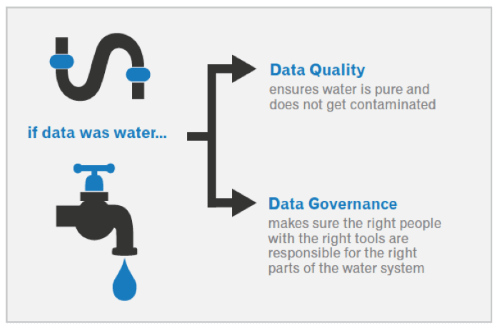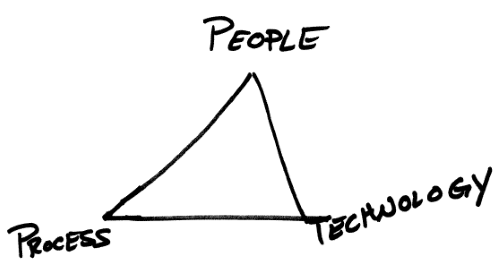- Products

Enjoy a free 30-day trial of our
data validation software.Experience the power of trusted data
solutions today, no credit card required! - Solutions

Enjoy a free 30-day trial of our
data validation software.Experience the power of trusted data
solutions today, no credit card required! - Partners

Enjoy a free 30-day trial of our
data validation software.Experience the power of trusted data
solutions today, no credit card required! - Learn more
- Pricing
- Contact Us
Data quality vs. data governance

In the world of data management, there is a lot of terminology that is used interchangeably. For example, validation and verification or fuzzy matching and identity resolution; these are similar terms that are widely used in our ecosystem. Data quality and data governance are another example of terms that are not synonyms, but are often confused, and with good reason.
These two terms are symbiotic, meaning they are interdependent on each other. You don’t really want to do one without the other.
This is how the DAMA Dictionary of Data Management defines the terms:
Data Quality – The degree to which data is accurate, complete, timely, and consistent with all requirements and business rules.
Data Governance – The exercise of authority, control, and shared decision making (e.g. planning, monitoring, and enforcement) over the management of data assets.
While these definitions are absolutely accurate and a great starting place for the data quality vs. data governance conversation, a bit more clarification is needed.

Data quality
Data quality has historically been aligned with contact data quality specifically, but organizations are now seeing the value of keeping all of their data clean. As shown in the graphic above, data quality is all about keeping your data from getting contaminated by maliciously invalid information or decay.
Examples of data quality solutions include cleansing, standardization, matching, profiling, and more. These solutions help your organization maintain and improve the quality of your data, ensuring that you can make smarter decisions about your business.
One fatal mistake that organizations often make is thinking of data quality as a “one and done” process. Data quality management is an ongoing cycle that needs to be done on the front-end as data is coming into your organization, but also on the back-end on a regular basis to keep legacy data up to the highest quality, integrity, and consistency standards that it was held to when it was first acquired.
Not sure about the integrity, quality, or consistency of your data? Our data quality software can analyze and improve your data.
Data governance
At its core, data governance encompasses three key areas: people, process and technology. In other words, a data governance framework assigns ownership and responsibility for data, defines the processes for managing data, and leverages technologies that will help enable the aforementioned people and processes.
People | Putting the right team together is critical for data governance success. These people will be responsible for managing all aspects of your organization’s data, so it’s imperative that you clearly define their roles and responsibilities. For more information about building a data quality team and some of the roles that are typically included, check out this blog post. |
Process | Defining a process for how data will be controlled, audited, and monitored is the next step in building a data governance framework. The data quality processes mentioned above are an important facet of data governance and help ensure that data is accurate, consistent, and fit for purpose. It is critical to understand that these are not the only processes involved in a data governance initiative, however. Other key governance processes include things like security and risk management, reference and master data management, and data standards and definitions, just to name a few. Data quality is an important piece of the puzzle, but it is just that – one piece. |
Technology | Technology alone is not a silver bullet for data governance, but does help enable your people, streamline your processes, and make sure your organization can make data-driven business decisions. Data management technologies can include things like verification, standardization, monitoring, collaboration, reporting, and identity resolution tools, just to name a few. |
At the end of the day, data quality and data governance are not synonymous, but they are closely related. Quality needs to be a mandatory piece of a larger governance strategy. Without it, your organization is not going to successfully manage and govern its most strategic asset: its data.
For more information on data quality and its critical role in the implementation of a data governance framework, download our white paper, Getting ahead of the game: Proactive data governance.





